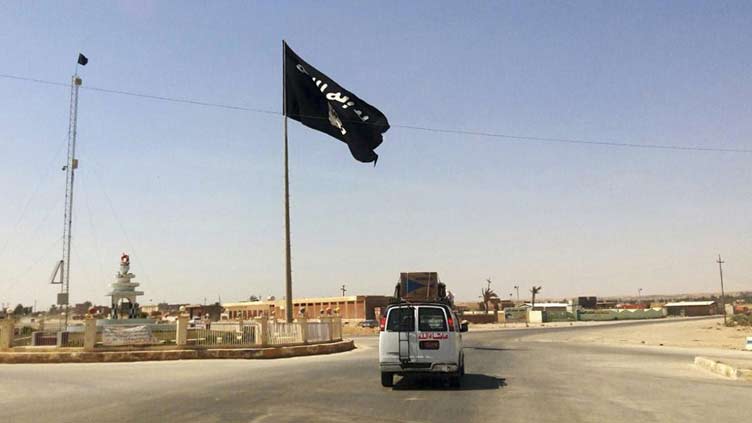US, others say Africa has become main target of IS group

World
US, others say Africa has become main target of IS group
RABAT (AP) — A senior U.S. official said Wednesday the world must remain vigilant about the continued threat posed by the Islamic State group around the globe — especially in Africa — a reminder of an unfinished war despite the overwhelming preoccupation with the conflict in Ukraine.
Victoria Nuland, the U.S. undersecretary of state for political affairs, said the threat from IS was particularly high on the African continent, which she said saw nearly 500 IS terrorist incidents in 2021 resulting in the deaths of more than 2,900 people.
“At the same time as we are preventing the resurgence of (IS) in Iraq and Syria, we need to remain vigilant to the continued threat it poses elsewhere in the world, especially here on the African continent,” she said.
Nuland spoke at the opening session in the Moroccan city of Marrakech of the annual gathering of members of the global anti-IS coalition. She is co-chairing this year’s meeting of the 8-year-old, 83-member bloc with Moroccan Foreign Minister Nasser Bourita. The gathering aims to reaffirm attendees’ shared determination to continue fighting IS.
Nuland, the third highest-ranking U.S. diplomat, replaced Secretary of State Antony Blinken who tested positive for COVID-19.
IS at the height of its power controlled more than 40,000 square miles (103,600 square kilometers) stretching from Syria to Iraq and ruled over 8 million people. It lost its last patch of territory in eastern Syria in March 2019 following a years-long global fight against the group.
Since that time, it has largely gone underground and waged a low-level insurgency, including roadside bombings, assassinations and hit-and-run attacks mostly targeting security forces in Iraq and Syria.
In recent months, the group has exploited economic collapse, lack of governance and growing ethnic tensions in the impoverished region to reverse counter-IS gains. Its attacks in the region included a major assault earlier this year to seize a prison in northeast Syria holding at least 3,000 IS detainees. In Afghanistan, IS militants have stepped up attacks on the country’s new rulers, the Taliban, as well as religious and ethnic minorities.
The group has claimed several attacks in Israel recently, and an Islamic State affiliate in Egypt on Sunday claimed an attack that targeted a water pumping station east of the Suez Canal, killing at least 11 soldiers.
“We remain clear on the state of the (IS) threat, which has not diminished,” said Bourita, warning that Africa has become the group’s main target, suffering 41% of all IS attacks worldwide.
Militants pledging allegiance to the Islamic State group remain active in Mali, Niger and Burkina Faso, where they have been blamed for scores of attacks on villages that have killed hundreds of civilians. Islamic extremists in Nigeria also have carried out violence under the banner of a group they call the Islamic State West Africa Province. More recently, IS-affiliated militants have claimed responsibility for deadly violence targeting Congolese soldiers and bars in the country’s embattled east.
Mozambique’s extremist rebels are also aligned with the IS group and announced this week it is known as the Islamic State Mozambique Province.
This year’s meeting is taking place to the backdrop of significant other international priorities, including the devastating war in Ukraine, fallout from the coronavirus pandemic and stepping up the fight against climate change.
Moroccan media report that some 80 countries would be represented at the gathering Monday. Delegates will also discuss ways to prevent a resurgence in Iraq and Syria by stabilizing liberated areas and pursuing sustainable solutions for IS detainees and their family members, as well as countering IS networks on the African continent and elsewhere.
The Moroccan government said it hopes the meeting will result in increased international commitment and cooperation in the fight against IS, with a particular focus on Africa and the growing terrorist threat in the Middle East and other countries.
Numerous Moroccans have traveled to Syria, Iraq and elsewhere to join extremist groups in recent years. Morocco has also experienced multiple attacks itself. Five suicide attacks in Casablanca in 2003 killed 33 people. In 2011, an explosion destroyed a cafe in Marrakech, killing 17 people, most of them foreign tourists.

